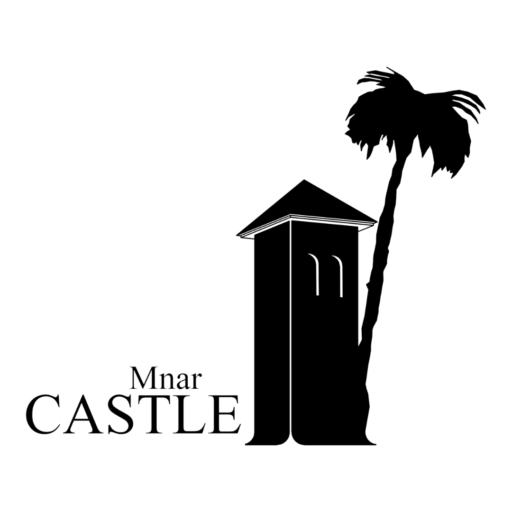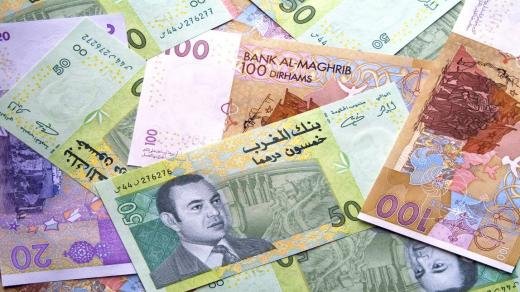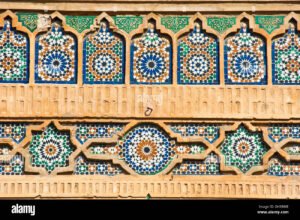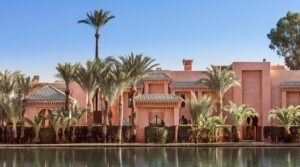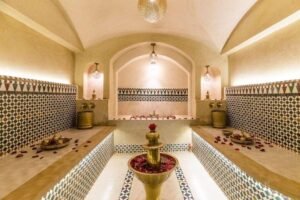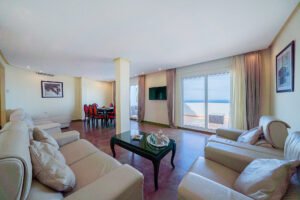Moroccan Currency: Everything Tourists Need to Know Before Visiting Morocco
Morocco is a destination that blends ancient traditions with modern luxury, offering visitors everything from vibrant souks and historic medinas to five-star resorts and private desert experiences. Whether you are visiting for business, a luxurious retreat, or a cultural adventure, understanding Moroccan currency is essential for a smooth and stress-free experience. Morocco operates on a cash-based economy, especially outside high-end hotels and international businesses. While some luxury establishments accept credit cards, most local markets, taxis, and small businesses deal strictly in Moroccan dirhams (MAD). Knowing where to exchange money, how to handle transactions, and avoiding common pitfalls will ensure you get the best value for your money. This guide covers everything you need to know about Moroccan currency, from exchange rates to spending habits, so you can travel with confidence. Questions? Chat with us now on WhatsApp for a quick response!1. What is the Moroccan Currency?
The official currency of Morocco is the Moroccan Dirham (MAD), abbreviated as DH or Dhs. Unlike the US dollar or euro, the dirham is a closed currency, meaning it is not widely available outside Morocco. This means that you will need to exchange money upon arrival or withdraw cash from local ATMs.Exchange Rate Overview
Exchange rates fluctuate, but here is a general guide:- 1 USD ≈ 10 MAD
- 1 EUR ≈ 11 MAD
- 1 GBP ≈ 13 MAD
2. Where to Exchange Money in Morocco?
Exchanging money in Morocco is straightforward, but some options offer better rates and lower fees than others.Airport Exchange Counters
Currency exchange offices are available at all major airports, including Casablanca Mohammed V, Marrakech Menara, and Fes-Saïss. While convenient, airport rates tend to be less favorable compared to banks or official exchange offices in the city.Banks and Official Exchange Offices
For the best exchange rates, use official bureaux de change or local banks such as Attijariwafa Bank, BMCE Bank, or Banque Populaire. These institutions offer secure transactions and fair exchange rates with low commissions.ATMs: A Convenient Option for Withdrawals
ATMs are widely available in major cities and tourist areas, making it easy to withdraw Moroccan dirhams. However, be aware of withdrawal fees and limits. Some ATMs restrict withdrawals to 2,000–3,000 MAD per transaction.Hotels and Riads
Some high-end hotels offer exchange services, but rates may not be as competitive as banks or exchange offices.Currency Exchange Tips
- Avoid exchanging money with street vendors, as counterfeit bills are a common scam.
- Keep exchange receipts, as some banks require them if you wish to convert any remaining MAD back into foreign currency when departing.
- Use a currency conversion app like XE Currency to check real-time exchange rates.
3. Cash or Card: What Works Best in Morocco?
Morocco is still primarily a cash-based society, especially outside major cities. While credit and debit cards are accepted in high-end hotels, fine-dining restaurants, and luxury boutiques, cash is essential for day-to-day transactions.Credit & Debit Cards
- Visa and Mastercard are widely accepted in urban areas.
- American Express is less common, even in upscale establishments.
- Some businesses may apply a surcharge for card payments, typically around 3–5 percent.
Where You’ll Need Cash
- Local markets and souks
- Taxis and small shops
- Traditional cafés and street food vendors
- Tipping for services
4. How Much Money Should You Bring?
Your budget will depend on your travel style. Below is a general guide to daily expenses in Morocco.Luxury Travelers (3,000+ MAD/day)
- Five-star hotels and private riads
- Chauffeured transportation
- High-end restaurants and gourmet dining
- Exclusive desert excursions and spa treatments
Mid-Range Travelers (1,000–2,500 MAD/day)
- Boutique hotels or well-rated riads
- Guided tours and cultural experiences
- Rooftop restaurants and fine Moroccan cuisine
Budget Travelers (400–800 MAD/day)
- Budget riads and guesthouses
- Public transportation
- Local street food and casual eateries
5. Avoiding Common Tourist Traps & Money Scams
Morocco is known for its haggling culture and, at times, dual pricing, where tourists are charged more than locals.Common Money-Related Scams
- Fake currency exchange deals: Only use official exchange offices.
- Incorrect change: Always count your change when making purchases.
- ATM skimming: Use ATMs inside banks or reputable locations.
Bargaining in Souks
Haggling is expected in traditional markets. Start by offering half the quoted price and negotiate from there. Vendors anticipate bargaining, and part of the experience is finding a mutually acceptable price.6. Tipping Culture in Morocco
Tipping is customary and appreciated for services. Here is a quick reference guide:- Restaurants: 5-10 percent of the bill (if service is not included)
- Hotel staff: 20–50 MAD for bellboys and housekeeping
- Tour guides: 50–100 MAD per day for private tours
- Taxi drivers: Round up to the nearest 10 MAD
7. Moroccan Currency: Can You Use Foreign Currency in Morocco?
Some luxury hotels and high-end stores accept euros or US dollars, but most of Morocco operates strictly in Moroccan dirhams. Always carry local currency for everyday expenses. If you have leftover dirhams at the end of your trip, exchange them back before leaving. Since the dirham is a closed currency, you may have difficulty converting it outside Morocco.8. Essential Tips for Managing Money in Morocco
- Notify your bank before traveling to avoid blocked transactions.
- Carry a mix of cash and card for flexibility.
- Use a money belt or concealed wallet in crowded areas.
- Decline dynamic currency conversion when using ATMs or card machines.
- Break large bills into smaller denominations, as many vendors lack change.

